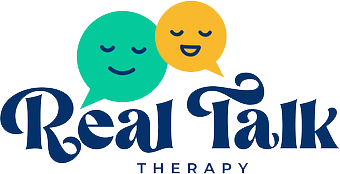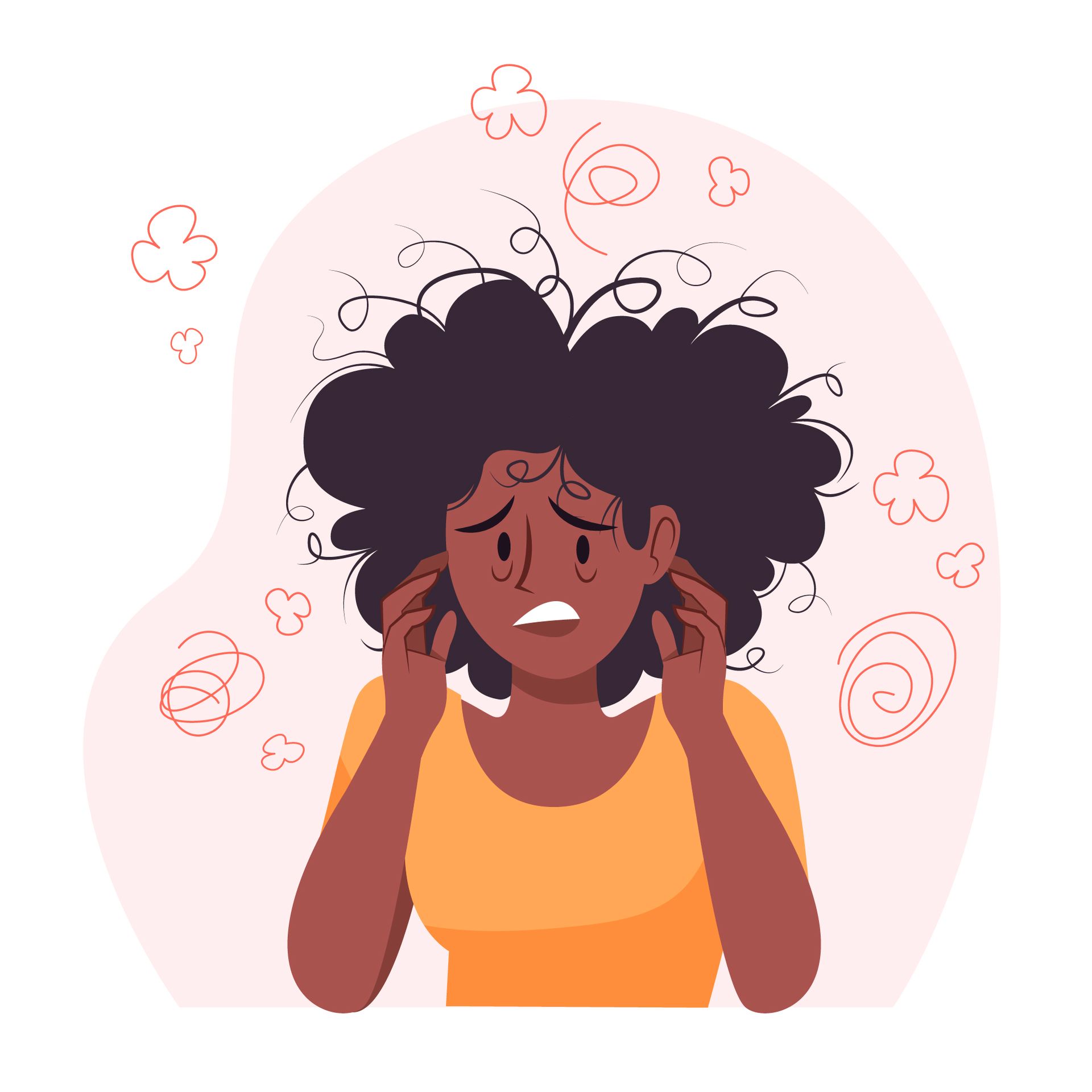Healing While Marginalized: How Cultural Messages Can Silence Mental Health Needs | Real Talk Therapy Corning NY

The Impact of Stigma on Marginalized Communities
Mental health stigma affects everyone, but stigma often hits marginalized communities especially hard. When you're already facing discrimination based on race, ethnicity, immigration status, or other factors, the added stigma surrounding mental illness can feel overwhelming.
The harmful effects of stigma include delayed treatment, increased isolation, and worsening mental health conditions. People with mental illness in marginalized communities may face double discrimination - both for their mental health challenges and their cultural identity.
This intersectional stigma can make it feel impossible to find safe spaces where all parts of your identity are accepted. You might feel like you have to choose between your cultural community and your mental wellness, which creates additional stress and isolation.
How Discrimination Affects People with Mental Illness
Discrimination against people with mental illness is widespread, but it can be even more complex for those from marginalized communities. You might face bias not only for having mental health struggles, but also for your race, culture, language, or immigration status.
This layered discrimination can make mental health care feel unsafe or unwelcoming. You might worry that health care providers will make assumptions about you based on stereotypes, or that your cultural background will be seen as a problem to overcome rather than a strength to honor.
The mental health care system itself can perpetuate discrimination through lack of diversity among mental health providers, inadequate cultural training, or treatment approaches that don't consider cultural context and values.
Breaking Through Cultural Barriers to Seek Help
Seeking mental health treatment while honoring your cultural values requires finding ways to bridge these different parts of your identity. This might mean looking for therapists who understand your background, or finding ways to involve family and community in your healing process.
It's important to know that getting help doesn't mean abandoning your culture or values. Many therapeutic approaches can be adapted to honor cultural beliefs while still providing effective mental health care. You can seek treatment while still maintaining connections to your community and traditions.
Sometimes breaking through barriers means having honest conversations with trusted family members or community leaders about mental health. You might find that others in your community have similar struggles but have been afraid to discuss them openly.
The Importance of Mental Health Awareness in Communities
Increasing mental health awareness within marginalized communities can help reduce stigma and encourage more people to seek care. When community leaders and respected members discuss mental health openly, it gives others permission to address their own struggles.
Mental health education that includes cultural context can help people understand that mental health conditions are medical issues, not character flaws or spiritual failures. This education needs to happen in culturally appropriate ways that respect community values and communication styles.
Building mental health awareness also means addressing the social determinants of health that affect marginalized communities, such as poverty, discrimination, and limited access to health care systems. Mental wellness requires addressing both individual symptoms and systemic barriers.
Finding Culturally Competent Mental Health Care
Culturally competent mental health care means finding providers who understand and respect your cultural background while providing effective treatment. This doesn't necessarily mean finding a therapist from your exact cultural background, but rather someone who is willing to learn about and honor your values.
Look for mental health professionals who have training in cultural competence, experience working with diverse communities, or specialized knowledge about your specific cultural background. Many mental health providers are committed to ongoing education about serving marginalized communities effectively.
When interviewing potential therapists, ask about their experience with your cultural community and their approach to incorporating cultural values into treatment. A good therapist will welcome these questions and be transparent about their experience and limitations.
Addressing Mental Health Stigma and Discrimination
Reducing the stigma surrounding mental health requires both individual and community-level efforts. This includes challenging harmful stereotypes, sharing stories of recovery, and advocating for better mental health resources in marginalized communities.
Mental health advocates from within communities can be particularly effective at addressing stigma because they understand the cultural context and can speak authentically about the experience of seeking help while maintaining cultural identity.
Supporting organizations like the National Alliance on Mental Illness that work to fight stigma and improve access to mental health services can help create systemic change that benefits entire communities.
Ways to Reduce Stigma Within Your Community
You can help reduce stigma by talking openly about mental health in culturally appropriate ways. This might mean sharing your own story, supporting others who are struggling, or challenging harmful comments when you hear them.
Educating yourself about mental health can help you become a resource for others in your community. When you can provide accurate information about mental health conditions and treatment options, you help normalize mental health discussions.
Working with community leaders, religious organizations, or cultural groups to provide mental health education can help reach people who might not otherwise have access to accurate information about mental wellness and treatment options.
Supporting People with Mental Health Challenges
If someone in your community is struggling with mental health issues, your support can make a huge difference in their willingness to seek help and their recovery process. This support needs to be non-judgmental and respectful of cultural values.
Learn about local mental health resources so you can provide practical information when someone needs help. This includes knowing about culturally competent providers, community mental health centers, and crisis resources that serve your area.
Sometimes the most important support is simply listening without trying to fix or judge. Creating space for people to discuss mental health concerns without fear of cultural rejection can be incredibly healing.
Creating Dialogue About Mental Health in Your Culture
Starting conversations about mental health within your cultural community can help normalize these discussions and reduce isolation for those who are struggling. These conversations need to happen in ways that respect cultural communication styles and values.
This might involve working with community elders, religious leaders, or cultural organizations to create educational programs or support groups. When respected community members lead these discussions, it can help reduce resistance and increase participation.
Sharing stories of mental health recovery that honor cultural identity can help others see that healing and cultural belonging can coexist. These stories can be particularly powerful when shared by people who are respected within the community.
Building Bridges Between Tradition and Healing
Honoring your cultural heritage while seeking mental health care doesn't have to be an either-or choice. Many traditional healing practices can complement modern mental health treatment when integrated thoughtfully and safely.
This might involve incorporating cultural rituals, spiritual practices, or family traditions into your healing process. Many therapists are open to learning about and incorporating cultural elements that are meaningful to their clients.
Building these bridges also means advocating for mental health systems that better serve marginalized communities. This includes pushing for more diverse mental health providers, culturally adapted treatment approaches, and better access to mental health services in underserved communities.
Summary: Key Takeaways for Healing While Marginalized
• Cultural messages about strength and family honor can create barriers to seeking mental health treatment, but healing doesn't require abandoning your values
• Mental health stigma affects marginalized communities disproportionately, creating intersectional discrimination that compounds existing challenges
• Asian American mental health faces unique barriers due to model minority myths and cultural expectations around emotional expression
• Finding culturally competent mental health care involves seeking providers who understand and respect your cultural background
• Reducing stigma requires both individual advocacy and community-level education that respects cultural communication styles
• Supporting others with mental health challenges means providing non-judgmental listening and practical resource information
• Building dialogue about mental health in cultural communities helps normalize these discussions and reduces isolation
Ready to Find Culturally Aware Mental Health Care?
You don't have to choose between honoring your cultural identity and caring for your mental health. With the right support, you can find healing that respects and incorporates your values and background.
I'm Natali Gonzalez at Real Talk Therapy in Corning, NY, and I understand the unique challenges that marginalized communities face when seeking mental health care. As someone from the Hispanic community, I know how cultural messages can both protect and limit us. Our practice is committed to providing culturally aware care that honors your whole identity while supporting your mental wellness.
Schedule your first appointment today and take the first step toward healing that honors both your cultural heritage and your mental health needs.
Important Disclaimer
This blog post is for educational purposes only and is not intended to diagnose, treat, cure, or prevent any medical or mental health condition. The information provided should not be used as a substitute for professional medical advice, diagnosis, or treatment.
If you are experiencing thoughts of self-harm, suicidal ideation, or are in crisis, please seek immediate help by calling 988 (Suicide & Crisis Lifeline), going to your nearest emergency room, or contacting emergency services.
Always consult with a qualified mental health professional before making any decisions about your mental health care. Individual experiences with cultural barriers to mental health care vary greatly, and what works for one person may not work for another.
Real Talk Therapy provides this information to help educate and support individuals, but this content does not establish a therapist-client relationship. For personalized care and treatment recommendations, please schedule a consultation with a licensed mental health provider.
SHARE THIS POST:
I'm Natali Gonzalez, LCSW
Founder of Real Talk Therapy
Lorem ipsum dolor sit amet, consectetur adipiscing elit, sed do eiusmod tempor incididunt ut labore et dolore magna aliqua. Ut enim ad minim veniam, quis nostrud exercitation ullamco laboris nisi ut aliquip ex ea commodo consequat.
Our Recent Post:
Reclaim Your Peace of Mind
Book your free consultation now and discover the support you deserve.





